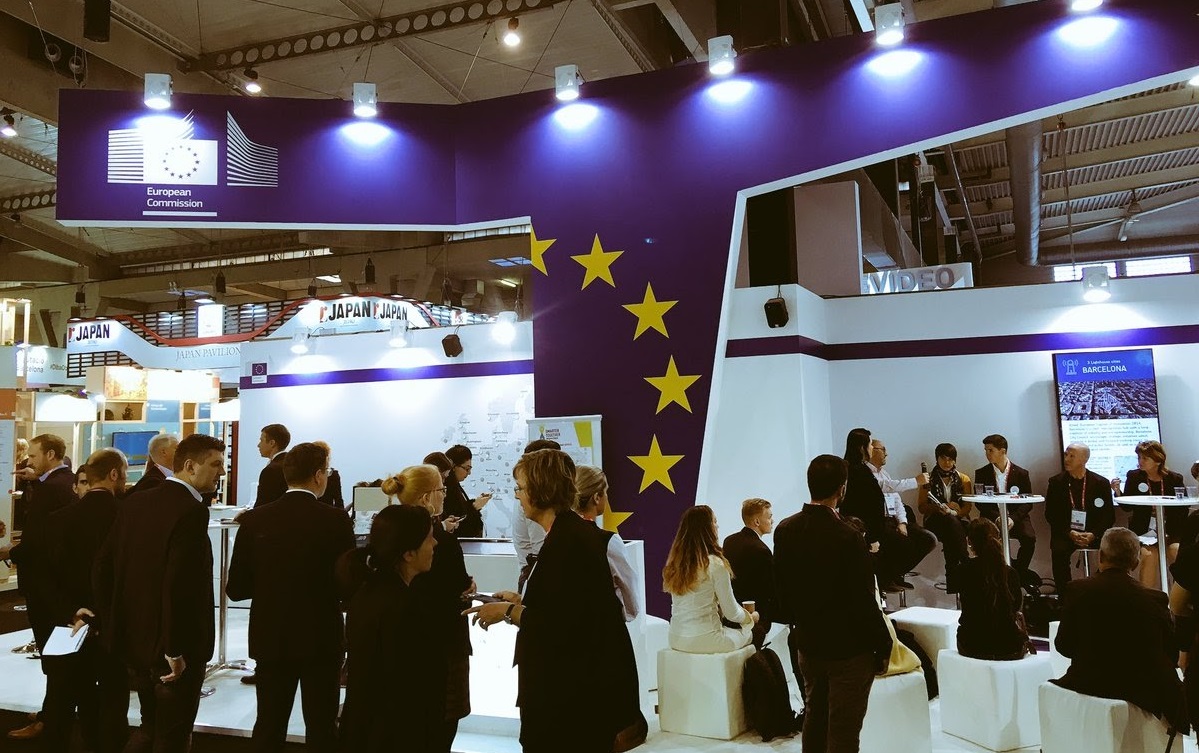
European Smart Cities gets a further boost towards collaborative action
Many of you will have enjoyed a few balmy yet hectic days in Barcelona at the Smart City EXPO World Congress. And perhaps also at the World Smart Cities Forum (WSCF) hosted by ISO/IEC/ITU. If you missed both, you missed a great networking opportunity, and some intriguing content. Here’s our brief summary of the events.
The EXPO is the European (indeed international) ‘bellwether’ event for smart cities, and each year it is fascinating to see how the market is evolving. We’ve moved from slideware and concepts in the early days, through industry-push solutions, to a very much more collaborative discourse amongst the city and industry stakeholders. The missing ingredient now is the money! And thus engaging city investors is key. Few were there as yet, though the need to engage them is very much more palpable now, and the insights from those that were was interesting.
The EXPO attracted 17,000 people from over 120 countries, which included the vital demand side of the market equation: 650 cities, many represented in national, regional and city-specific stands. This year saw the usual technology players present, with their ecosystem of SME collaborators supporting their stands. Indeed, the city stands frequently also included their local partners. Manufacturers and city service providers from across a growing number of sectors were also well represented. So what was new or different? What strong messages came through?
- The smart cities market will persist. It’s certainly not going away!
- Capabilities, knowledge and collaboration seems to be growing year-on-year; and cities are taking control of their destiny
- Some early wins would appear to be in place – parking, waste, smart lampposts
- Scale and breadth of implementations still rather evades us
- 5G and data privacy are on the tip of many tongues…linked to the ongoing debate about how cities can best go about managing their data
The WSCF, “Future cities – Solutions for common challenges: How international standards support the development of smart and sustainable cities”, hosted by ISO this year following the inaugural IEC-led event in Singapore in 2016, addressed the important topic of developing open common solutions for what are more often than not shared city challenges and opportunities. Some may see ‘standards’ as a bit of a drab topic, however, like it or not, guidance, best practices and standards play a vital role in shaping the market. They bring confidence to all stakeholders, support interoperability, can foster faster implementation in the market, and better value – all rather important needs! The WSCF involved quite specific discussions on a dozen or so city-needs led themes to understand what the international standards development organisations (SDOs) as well as national standards bodies (NSBs) can do together to help. There was a clear commitment to collaborate to provide far clearer messaging to the cities market, and agreement on some very practical areas to work swiftly and jointly on.
European Commission investments played an important underlying role right through both events. The Smart City ‘Lighthouse’ (SCC01) programmes – an investment nearing €300m of EU grant finance – were well represented with all the up-and-running programme partners contributing to ten topic discussions at the European stand. These covered: district heating, performance measurement, urban data platforms, replication of solutions, citizen engagement, building energy management, smart waste, mobility, smart city strategies and planning; and smart lampposts. All very practical, and all very relevant to smart city transformations – for both the 40 lighthouse and 60 follower cities in all 12 programmes, as well as all the rest of the cities in Europe! The opportunities resulting from collaboration within and between these lighthouse programmes can really help shape the EU cities market. And that’s good for EU Industry actors involved in it on a worldwide scale.

The glue that seeks to pull these programmes and the rest of the market together is the EIP-SCC. Both the Marketplace and the SCIS (Smart City Information System) consortia were present and active at the stand, and throughout the event. And stakeholders involved in many of the EIP commitments were sharing their views in both event agendas. These events, alongside the recent EIP-SCC General Assembly all build towards a more efficient and effective smart cities market.
A footnote on the ‘missing ingredient’ we mentioned – the money! Look out for the EIP-SCC Marketplace white paper: “Towards a Joint Investment Programme for European Smart Cities” that will be posted shortly. It might well be worth your time to comment it. It sets the context for a proposed roadmap of specific actions to help fill this important gap in the market. Your contribution, and indeed perhaps your active involvement, could really help our collective goal of more liveable, smart and sustainable cities.
